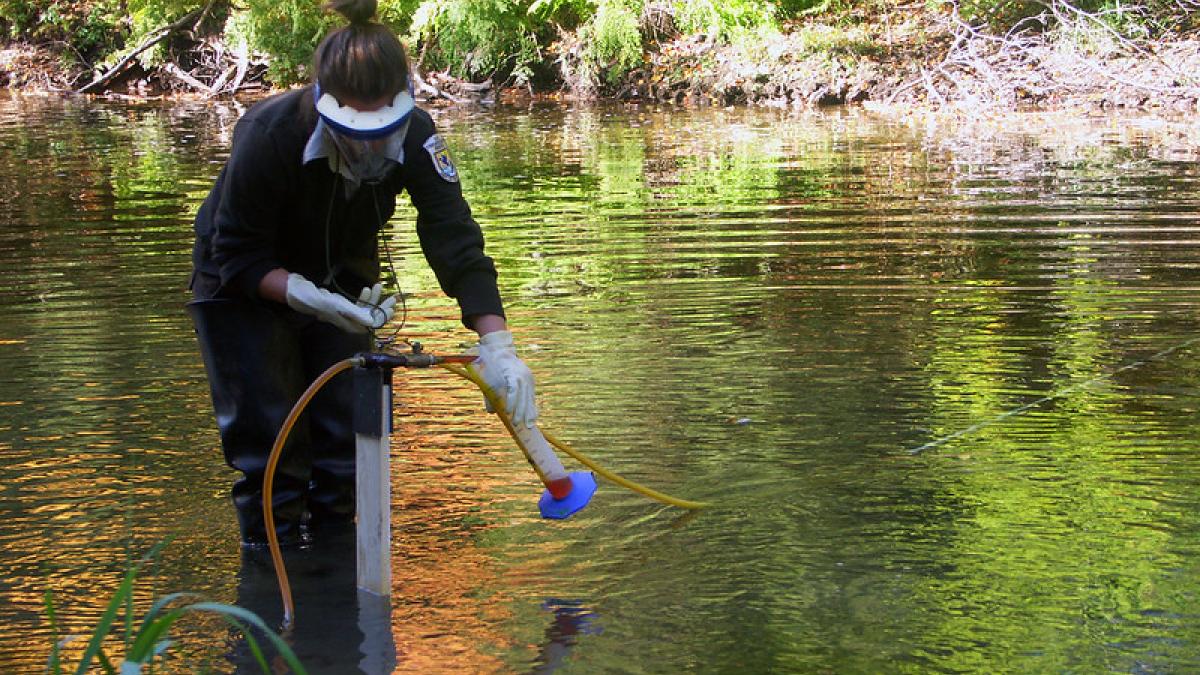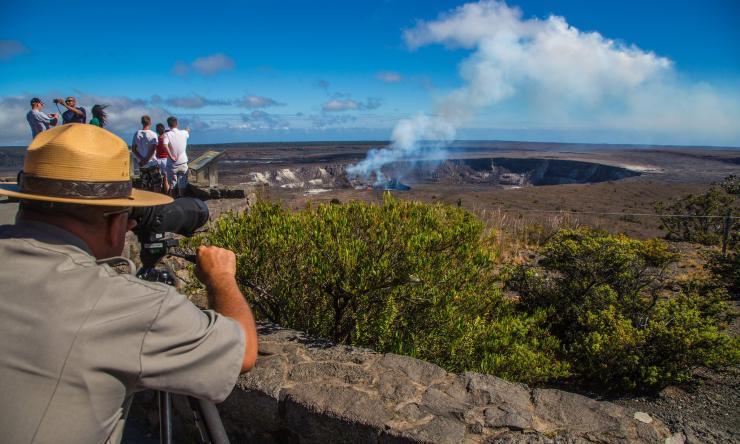
Environmental Engineering
Position Overview
The Department of the Interior is tasked with the stewardship and responsible management of the nation’s public lands, natural resources, and species and their habitats. Environmental engineers ensure DOI meets this mission by assessing the environmental impact of activities such as construction or natural resource development.
This position is represented at the following bureaus
Candidate Description
The ideal candidate is a tenacious person who can apply their professional engineering knowledge to solving complicated problems across multiple systems as part of a team. The issues addressed by environmental engineers are multi-faceted and directly impact the mission of the Department, so they must possess a keen attention to detail, a knack for problem solving, and should be an effective communicator.
Specialty Areas
Air Pollution/Control; Contamination Sites; Mining/Industrial Operations; Regulatory Compliance (e.g., National Environmental Protection Act); Restoration; Sustainability; Wastewater; Waste Systems; Water Systems
Work Environment
Work is performed primarily in an office setting, with occasional field and site visits.
Minimum Education Requirements
Please see the Individual Occupation Requirements and the Professional and Scientific Positions Group Qualification Standard on the OPM websites.
Career Level Requirements
Responsibilities by Level
Journey:
- Assesses existing or potential environmental impact of land use projects on air, water, or land
- Conducts or coordinates environmental impact audits; Designs systems, processes, or equipment for control, management, or remediation of water, air, or soil quality
- Recommends actions necessary to preempt the occurrence of environmental statutory violations and to achieve compliance
- Develops, manages, and executes environmental initiatives
Strengths by Level
-
AccountabilityHolds self and others accountable for measurable high-quality, timely, and cost-effective results. Determines objectives, sets priorities, and delegates work. Accepts responsibility for mistakes. Complies with established control systems and rules.Show Tool TipJourney 12-13
-
Attention to DetailIs thorough when performing work and conscientious about attending to detail.Show Tool TipJourney 12-13
-
Customer ServiceWorks with clients and customers (that is, any individuals who use or receive the services or products that your work unit produces, including the general public, individuals who work in the agency, other agencies, or organizations outside the Government) to assess their needs, provide information or assistance, resolve their problems, or satisfy their expectations; knows about available products and services; is committed to providing quality products and services.Show Tool TipJourney 12-13
-
FlexibilityIs open to change and new information; adapts behavior or work methods in response to new information, changing conditions, or unexpected obstacles; effectively deals with ambiguity.Show Tool TipJourney 12-13
-
Interpersonal SkillsTreats others with courtesy, sensitivity, and respect. Considers and responds appropriately to the needs and feelings of different people in different situations.Show Tool TipJourney 12-13
-
LearningUses efficient learning techniques to acquire and apply new knowledge and skills; uses training, feedback, or other opportunities for self-learning and development.Show Tool TipJourney 12-13
-
Oral CommunicationExpresses information (for example, ideas or facts) to individuals or groups effectively, taking into account the audience and nature of the information (for example, technical, sensitive, controversial); makes clear and convincing oral presentations; listens to others, attends to nonverbal cues, and responds appropriately.Show Tool TipJourney 12-13
-
Problem SolvingIdentifies problems; determines accuracy and relevance of information; uses sound judgment to generate and evaluate alternatives, and to make recommendations.Show Tool TipJourney 12-13
-
Project ManagementKnowledge of the principles, methods, or tools for developing, scheduling, coordinating, and managing projects and resources, including monitoring and inspecting costs, work, and contractor performance.Show Tool TipJourney 12-13
-
ResilienceDeals effectively with pressure; remains optimistic and persistent, even under adversity. Recovers quickly from setbacks.Show Tool TipJourney 12-13
-
Teaching OthersHelps others learn through formal or informal methods; identifies training needs; provides constructive feedback; coaches others on how to perform tasks; acts as a mentor.Show Tool TipJourney 12-13
-
TeamworkEncourages and facilitates cooperation, pride, trust, and group identity; fosters commitment and team spirit; works with others to achieve goals.Show Tool TipJourney 12-13
-
Technical CompetenceUses knowledge that is acquired through formal training or extensive on-the-job experience to perform one's job; works with, understands, and evaluates technical information related to the job; advises others on technical issues.Show Tool TipJourney 12-13
-
WritingRecognizes or uses correct English grammar, punctuation, and spelling; communicates information (for example, facts, ideas, or messages) in a succinct and organized manner; produces written information, which may include technical material, that is appropriate for the intended audience.Show Tool TipJourney 12-13
Common Pathways
Candidates who made this career change most commonly held these occupations...
Civil Engineering

Miscellaneous Administration and Program








